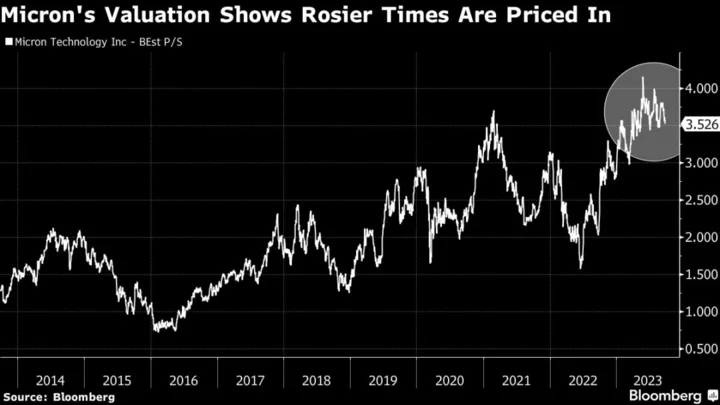Defenders of the abortion pill got a cold reception Wednesday from a US appeals court composed mostly of Donald Trump appointees hearing arguments on whether to uphold a ban on the drug imposed in April by a federal judge in Texas.
A panel of three judges on the 5th US Circuit Court of Appeals in New Orleans plied lawyers for the federal government and mifepristone manufacturer Danco Laboratories with questions about why the Food and Drug Administration has taken steps to loosen restrictions on the drug — including allowing it to be sent to patients through the mail — and whether the government followed the law when it first approved the pill for use in 2000.
Lawyers for the government and Danco argued that the courts should not second guess the FDA’s determinations that a drug is safe for use and that US District Court Judge Matthew Kacsmaryk’s order banning mifepristone is an “unprecedented” move that undermines the agency’s authority.
But Circuit Judge James Ho bristled at that characterization. He interrupted FDA lawyer Sarah Harrington during her opening statement to contest her description of the Texas order, and he questioned Danco attorney Jessica Ellsworth on her assertions that questions of drug safety should not be decided by the courts.
“I don’t understand the argument that the FDA should not be questioned,” Ho said. “We are allowed to look at FDA just like any other agency.”
‘Unusual Remarks’
Circuit Judge Jennifer Walker Elrod criticized language Ellsworth used to describe Kacsmaryk’s order. In court filings, the Danco lawyer referred to the Texas ruling as “unprecedented” and a “judicial assault.”
“I’m concerned about what are some unusual remarks in the filings, and these are remarks that we don’t usually see from very esteemed counsel that talk about the district court,” Elrod said. “You think it’s appropriate to attack the district court personally in that way?”
Ellsworth defended the language, stating that the case is unusual and her descriptions of Kacsmaryk’s decision reflect that fact — but she said she may have softened her tone if she’d had more time to prepare the briefs.
Amarillo, Texas-based Kacsmaryk said in his ruling that it was clear the FDA overstepped its authority when it first approved mifepristone and suggested the agency “faced significant political pressure” to advance the drug. He issued a so-called preliminary injunction that would’ve blocked access to mifepristone while the lawsuit before him continued.
The Circuit will now consider whether uphold Kacsmaryk’s order — a decision that will almost certainly be appealed to the Supreme Court. Even if the appeals court panel rules in favor of permitting the order to be adopted, it will not go into effect until the matter returns to the Supreme Court.
A key question discussed Wednesday was whether the doctors and medical groups behind the lawsuit would suffer injuries if FDA approval of mifepristone is allowed to stand. They’ve argued they would be forced to assist patients experiencing complications after taking the pill, including performing abortions in violation of their religious beliefs if the chemical treatment doesn’t work completely.
But Harrington argued the doctors provided no concrete examples of having to provide care they objected too, and that state and federal law allow medical professionals to decline to provide treatment if they have a conscientious or religious objection.
Harrington and Ellsworth also cited federal data that shows serious side effects necessitating emergency care occurs in less than 1% of abortions using mifepristone.
But Judge Cory Wilson wasn’t convinced. He suggested those figure could actually have risen because the FDA has loosened restrictions on the drug since it was approved, including making it available by mail, removing required doctor’s visits or that prescribers must be doctors.
“You’ve made it much more likely that patients are going to go to emergency care or a medical clinic,” Wilson said. “I don’t see how you square that circle.”
Harrington rejected that claim, saying “that hasn’t been borne out by the evidence.”
Abortion Opponents
The legal fight over mifepristone got its start in November when a conservative legal group, Alliance Defending Freedom, sued in Amarillo to challenge the FDA approval on behalf of anti-abortion medical organizations and doctors. Lawyers for the group say that the plaintiffs filed a citizen petition with the FDA in 2002 asking officials to review its approval of the drug, but the petition was rejected in 2016.
Their lawsuit alleges the FDA fast-tracked approval of the drug without sufficient scientific evidence through a process reserved for accelerating authorization of drugs used to treat illnesses like cancer and HIV.
It also takes issue with several subsequent decisions by the agency to loosen restrictions on the pill, including a 2016 move to extend the window of use from seven weeks of gestation to 10 weeks and a more recent decision permitting the pill to be distributed through the mail.
Lawyers for the FDA have defended all of the agency’s decisions, arguing that officials followed the law when they approved the drug for use and that mifepristone continues to be a safe and effective method for terminating a pregnancy.
The government also argued the lawsuit should be thrown out because the plaintiffs waited too long to file their complaint after the drug was approved and their citizen petition was rejected.
The appellate case is Alliance for Hippocratic Medicine v. US Food and Drug Administration, 23-10362, 5th US Circuit Court of Appeals.
Read more
- What’s Mifepristone? What’s the Fight Over It About?: QuickTake
- Dueling Abortion Pill Rulings Ripe for Supreme Court Fight
- Conflicting Rulings Over Abortion Pill Add to Chaos Over Access
- US Asks Appeals Court to Block Texas Abortion Pill Ruling
- Abortion Pill Legal Fight Leaves FDA Grappling With Response
(Updates with arguments from hearing.)









